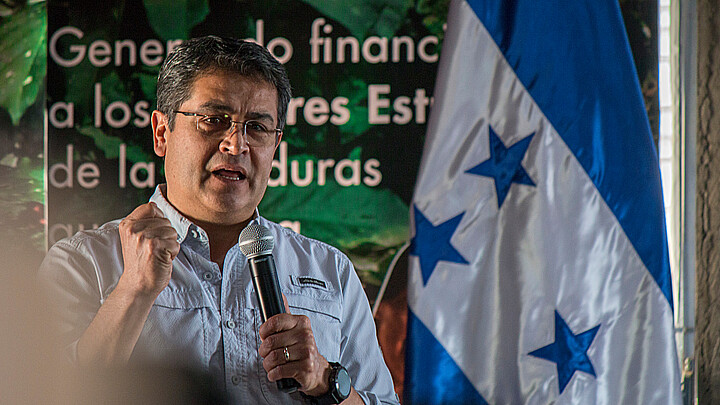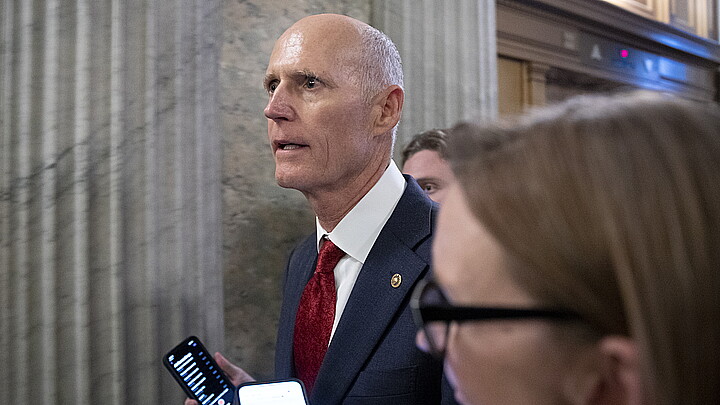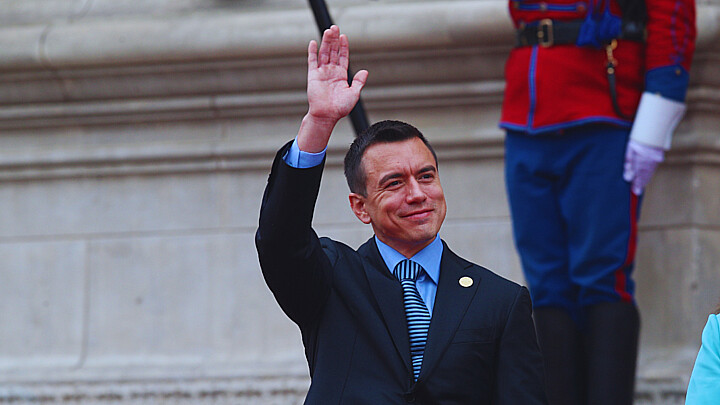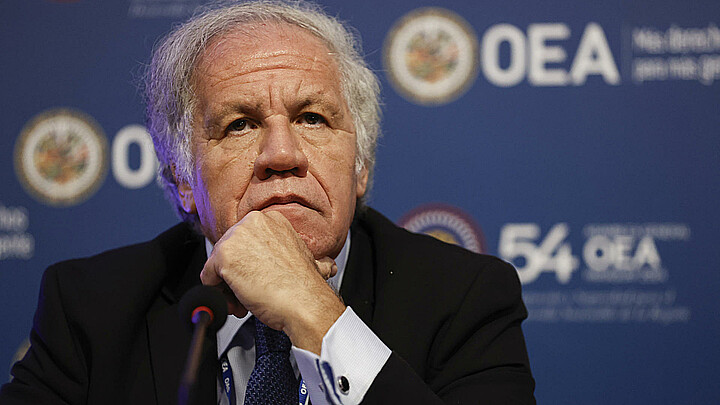Politics
Kissinger and Latin America: Reinforced removing Castro, supported Pinochet, developed the Panama Canal treaty
Shortly after the Vietnam War in 1976, after Cuba sent troops to support the communist movement Angola in Africa, Kissinger told Ford the U.S. might have to “smash Castro”

December 1, 2023 10:13am
Updated: December 1, 2023 10:13am
Henry Kissinger, a former aide to Presidents Richard M. Nixon and Gerald Ford, passed on Thursday evening at his home in Connecticut at the age 100, according to his consulting firm.
Often thought of as the modern father of “realpolitik”—foreign policy engagement based on what is practical instead of ideological—Kissinger rose in the ranks of America’s political community to become one of the nation’s most respected—and controversial statesmen.
Former Republican President George W. Bush said the United States “lost one of the most dependable and distinctive voices on foreign affairs,” and former New York City Mayor Michael Bloomberg said the former statesman was “endlessly generous with the wisdom gained over the course of an extraordinary life.”
Under Nixon, Kissinger rose as the only diplomatic official to serve as both national security adviser and secretary of state. After Nixon resigned from the Watergate scandal, Kissinger served as secretary of state under President Ford and Vice President Nelson Rockefeller.
During the Vietnam War, Kissinger shunned traditional foreign policy and instead pushed a philosophy of realpolitik, embracing policies such as the detente that led to the Anti-Ballistic Missile Treaty and SALT I nuclear arms treaty with the Soviet Union.
He was also responsible for the U.S. recognizing Beijing instead of Taiwan as the legitimate government of China, part of a strategy to play the Maoist state against its Marxist-Leninist neighbor, the U.S.S.R.
Born in 1923 in Germany, Kissinger’s family escaped Nazi Germany and found asylum in the United States. He quickly rose in ranks in U.S. politics, and in 1973, was able to use his influence to help the Jewish homeland negotiate an end to the 1973 Yom Kippur War between Israel and Arab nations.
He also orchestrated the Paris Peace Accords that withdrew the U.S. involvement in Vietnam, a move that ultimately left South Vietnam to fall to the communist North.
Amid his many foreign policy legacies he also had an impact on Latin America and among Hispanics in the United States.
Shortly after the Vietnam War in November 1975, after Castro sent Cuba’s troops to support the communist “People’s Movement for the Liberation of Angola” in Africa, Kissinger told Ford the U.S. might have to “smash Castro.”
He suggested “clobbering” the Caribbean based Soviet ally with U.S. military power and even drafted contingency plans for second U.S. attack on the communist Castro regime after the failed Bay of Pigs liberation effort attempted launched by President John F. Kennedy in April 1961.
In the 1961 scenario, the U.S. parachuted in more than 1,500 CIA trained Cuban exiles into the marshes of southwestern coast of Cuba with the aim of orchestrating an armed overthrow of the Castro regime.
Despite heroic efforts by the Brigade 2506 to overthrow the communist dictator, delayed air support from U.S. military forces gave Castro’s troops an advantage and the liberation attempt was foiled.
Kissinger’s 1976 Cuba plans were never borne out since Ford left office the next year in 1977, and was succeeded by former Admiral and Georgia Gov. Jimmy Carter, a Democrat who ultimately became embroiled with Iran after the 1978-79 Islamic Revolution resulted in the taking of the U.S. Embassy in Tehran along with 52 American hostages for 444 days.
But during Carter’s four-year presidency from 1977-1981, Kissinger helped develop the tenets of the Panama Canal Treaty, an agreement that returned the trade channel back to Panama.
After the Carter presidency, Kissinger returned to the White House under President Ronald Reagan to head a 12-member commission that developed solutions for Latin America.
While he acknowledged he was part of a decision to send economic aid to the region, he denied knowing being part of the White House sending naval vessels off the coast of Nicaragua and 4,000 troops to train in Honduras.
When Kissinger was asked during a July 1983 CBS Morning Show interview whether the U.S. would need to use troops to stop a communist domino effect rippling throughout the Western Hemisphere, he replied, “I hope that that point will not be reached.”
He then added that “if there were Soviet bases” established bases in the region the U.S. would have to act forcefully.
Concern about communist rising in Latin America became a central theme within the Reagan administration, and Kissinger was appointed as one of the cold warriors positioned to stop Soviet aggression.
University of Texas Professor Stephen G. Rabe and author of “Kissinger and Latin America: Intervention, Human Rights, and Diplomacy,” said that the former Republican foreign policy aide favored lending support to far-right governments throughout the region to help stave off the communist threat.
He supported South American governments in Argentina, Bolivia, Chile and Uruguay, and helped resolve economic and trade disputes with Mexico, Ecuador, Peru and Venezuela.
Some journalists, academics and the left have portrayed Kissinger’s influence on the region as a negative one.
Graciela Mochkofsky, the director of the Spanish language program at CUNY’s Graduate School of Journalism said under Kissinger’s watch, South America emerged into a dark era.
“As part of America’s chess game with the Soviets during the Cold War, Kissinger, as secretary of state and national security advisor to Presidents Richard Nixon and Gerald Ford, became an unflinching supporter and, at least in the case of Chile, co-conspirator, of the coups d’état and military dictatorships that spread throughout South America in the 1970s” writes Mochkofsky in the 2016 Atlantic article about the former statesman.
In his book “The Trial of Henry Kissinger,” journalist Christopher Hitchens argued convincingly that Kissinger deserved prosecution “for war crimes, for crimes against humanity, and for offenses against common or customary or international law, including conspiracy to commit murder, kidnap, and torture.”
Peter Kornbluh, director of the Cuba and Chile Documentation Projects at the National Security Archive, told NBC News that “Henry Kissinger’s legacy in Latin America is a dark one, and that’s because he didn’t give a damn about human rights.”
Kornbluh added that Kissinger took no issue with supporting Chile’s Gen. Augusto Pinochet when he took power in 1973 and accused the former statesman of orchestrating the overthrow of Salvador Allende in Chile.
He argued that move led to mass immigration in the region after an estimated 200,000 Chileans fled the South American country, and that many Chileans sought refuge in the United States.
Hispanics were also impacted under the Vietnam War started by Democratic presidents Kennedy and Johnson and later inherited—and ended—by Nixon and by proxy, Kissinger. Although Kissinger started out as a supporter of the war, he began to see it as a problem for the United States.
By 1970, according to the Pew Research Center, there were only about 9.6 million Hispanics in the U.S. making up a mere 5% of the population. But soon there was a disproportionate number of Latino casualties in the war, and the Nixon administration sought an exit to the conflict.
In January 1973 Kissinger drafted and negotiated the Paris Peace Accords, the agreement that led to U.S. withdrawal from the Southeastern Asian country.
In his Jan. 23 speech to the nation, Nixon called the 1973 Paris Peace Accords a strategy he termed “Peace with Honor.” Two months later in March, the U.S. began its withdrawal, and Saigon fell to North Vietnamese forces by April 30, 1975.
After sentiment turned against the war, some Hispanics faced the antiwar movement brewing within Chicano and Latino communities.
Still, University of California Professor Carlos Muñoz Jr. told NBC News that fact cannot be blamed on Kissinger.
“It was a super-patriotic time at first,” recalled. “I served in Army intelligence, and it was a radical experience for me. I saw what the administration was doing, and I came to feel that it [the war] never should have occurred. So many of my friends and colleagues died needless deaths.”
“To be fair, no matter who was serving in his [Kissinger’s] position, it was a losing proposition,” Muñoz told the national news outlet. “The war was simply killing too many of our Chicano boys…”
As such, according to NBC, the Vietnam War amplified the Mexican American civil rights movement.
Despite his 1976 proposal to consider liberating Cuba from communist rule, declassified documents reveal a strange twist.
In their book, “Back Channel to Cuba: The Hidden Negotiations between Washington and Havana,” Peter Kornbluh and William LeoGrande insist Kissinger considered normalizing relations with the Castro dictatorship—before he pushed for overthrowing it in 1976.
Hispanic American lawmakers have also sought Kissinger’s counsel for help.
In 2015, as Republicans lined up to challenge Donald Trump for the 2016 nomination, U.S. Sen. Marco Rubio was one of many candidates, along with former governors Chris Christie and Scott Walker who contacted the former national security adviser for his advice.
In a Feb. 4, 2015 article published by Politico, Michael Crowley quoted a legislative aide who told the journalist that Rubio had “met with Kissinger a couple of times in the past, and always appreciates his insights.”
The spokesman added that Rubio was reading Kissinger’s 2014 book, “World Order.” In that book, Kissinger wrote about the distribution of power throughout the world, asserting that Western ideas changed with the 1648 Peace of Westphalia treaty.
Kissinger argued that the treaty resulted in four major power systems throughout the world: China, Islam, Europe and the United States, all of which now make up the current international order.
President Biden said Kissinger’s legacy on the U.S. and world affairs was significant and everlasting.
“I'll never forget the first time I met Dr. Kissinger,” Biden said in a White House statement, Thursday. “I was a young Senator, and he was Secretary of State — giving a briefing on the state of the world. Throughout our careers, we often disagreed. And often strongly. But from that first briefing — his fierce intellect and profound strategic focus was evident. Long after retiring from government, he continued to offer his views and ideas to the most important policy discussion across multiple generations.”










